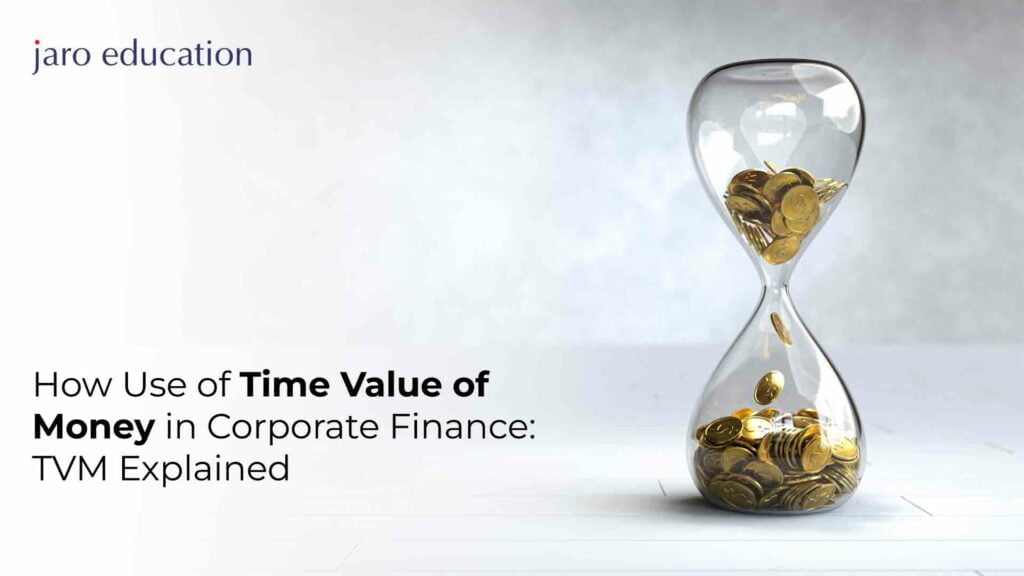There is a famous slang phrase, “time is money”? But there is an insightful concept that shows the value of money in a period of time. The concept is the time value of money(Tvm). However, it does not mean that time is money but signifies a meaning and is a helpful resource in the company’s finance.
Let’s dive further and look at what TVM means and how to use the time value of money in corporate finance. Also, it is crucial for professionals who are pursuing executive business management programs (EBMP) or for learners interested in investment.
What is the Time Value of Money?
The time value of money (TVM) is the concept that the money you have with you today is worth more than the exact amount you would receive in the future. It is because of the profit that can be earned during the interim.
It is highly recommended in small businesses for better profit. Also, understanding the TVM can help you make decisions like which job provides a better salary, what type of investment you should consider, and what will be the good rate for the loan. Hence, it shows potential growth and brings more value.
How Does the Time Value of Money Work?
In corporate finance, the time value of money is an essential concept because of the money invested and its growth over time. In fact, the money can still earn compound interest even if it is in a savings account. It helps to focus on identifying the real value of cash flow.
Moreover, it signifies the expected future due to the business or individual investment decisions made from time to time. For instance, the money deposited into a savings account earns interest. Over time, the interest is added to the principal, which leads to making more interest. And that’s the power of compounding interest.
How to Calculate the Time Value of Money
Here is the formula to calculate the time value of money:
Future value= Present Value × [1 + (i / n)] (n x t)
FV = the future value of money
PV = the present value
i = the interest rate or other return that can be earned on the money
t = the number of years to take into consideration
n = the number of compounding periods of interest per year
Let’s take an example by using this formula. A person has invested $20,000 for one year at 10% interest compounded annually. The future value of the money-
Future value= $20,000× [1 + (i / 10)] (1 x t).
$22,000
Time Value of Money in Corporate Finance
Hence, companies consider the time value of money to make decisions about investing in new product development, acquiring new business equipment, or establishing credit terms for the sale of their product.
Calculating TVM is necessary as it helps financial sectors make effective investment decisions. By using this concept, the key investors compare the available investment options and determine the best options to invest in. However, to the expected loss in the value of money, the rate of interest and tenure of repayment for loan and mortgage schemes are intent. Moreover, choosing the time value of money also helps revise the wages of workers and the costs of consumer goods.
Institutes like IMT Ghaziabad offers courses on EBMP to upscale the time value of money and give you practical knowledge on how to use the time value of money in corporate finance.






